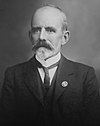
Michael Joseph Savage was an Australian-born New Zealand politician who served as the 23rd prime minister of New Zealand, heading the First Labour Government from 1935 until his death in 1940.

Peter Fraser was a New Zealand politician who served as the 24th prime minister of New Zealand from 27 March 1940 until 13 December 1949. Considered a major figure in the history of the New Zealand Labour Party, he was in office longer than any other Labour prime minister, and is to date New Zealand's fourth-longest-serving head of government.

The 1935 New Zealand general election was a nationwide vote to determine the shape of the New Zealand Parliament's 25th term. It resulted in the Labour Party's first electoral victory, with Michael Joseph Savage becoming the first Labour Prime Minister after defeating the governing coalition, consisting of the United Party and the Reform Party, in a landslide.

The 1943 New Zealand general election was a nationwide vote to determine the shape of the New Zealand Parliament's 27th term. With the onset of World War II, elections were initially postponed, but it was eventually decided to hold a general election in September 1943, around two years after it would normally have occurred. The election saw the governing Labour Party re-elected by a comfortable margin, although the party nevertheless lost considerable ground to the expanding National Party.

The 1949 New Zealand general election was a nationwide vote to determine the shape of the New Zealand Parliament's 29th term. It saw the governing Labour Party defeated by the opposition National Party. This marked the end of the 14-year First Labour government and the beginning of the First National government.
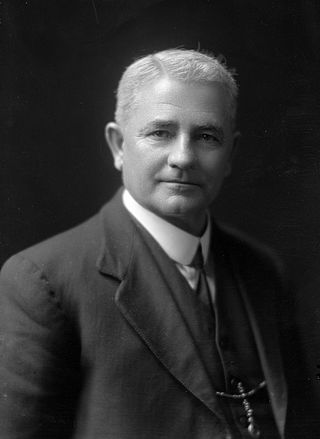
Henry Edmund Holland was an Australian-born newspaper owner, politician and unionist who relocated to New Zealand. He was the second leader of the New Zealand Labour Party.

The 19th New Zealand Parliament was a term of the New Zealand Parliament. It opened on 24 June 1915, following the 1914 election. It was dissolved on 27 November 1919 in preparation for 1919 election.
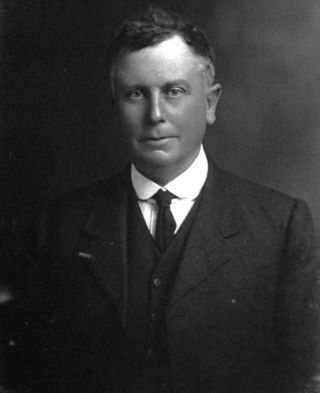
Alfred Humphrey Hindmarsh was a New Zealand politician, lawyer, and unionist. He died in the 1918 influenza epidemic. He served as the first leader of the modern New Zealand Labour Party.
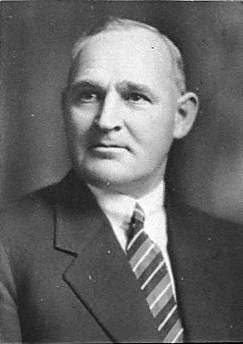
Frank Langstone was a New Zealand Member of Parliament, Cabinet Minister and High Commissioner to Canada.

Wellington Central is an electorate, represented by a Member of Parliament in the New Zealand House of Representatives. The current MP for Wellington Central is Tamatha Paul of the Green Party. She has held this position since the 2023 general election.

Robert Fletcher was a New Zealand politician of the Liberal Party.

James Wright Munro was a New Zealand politician of the Labour Party.
Grey Lynn is a former New Zealand parliamentary electorate, in the city of Auckland. It existed from 1902 to 1978, and was represented by nine Members of Parliament.
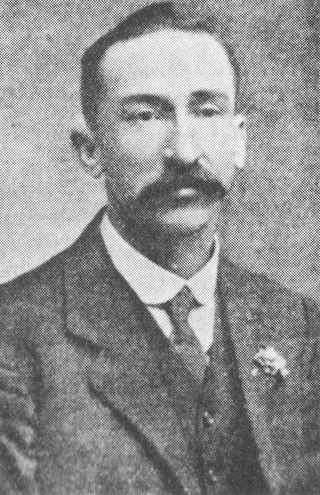
Matthew Joseph Mack was a New Zealand railway worker and trade unionist.
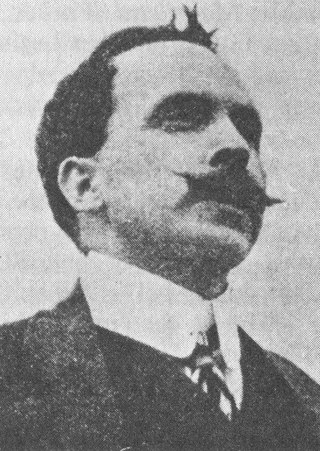
Michael John Reardon was a New Zealand political activist.

The 1945 Dunedin North by-election was a by-election held during the 27th New Zealand Parliament in the Dunedin electorate of Dunedin North. The by-election occurred following the death of MP James W. Munro and was won by Robert Walls.

Thomas Brindle was a New Zealand activist for the New Zealand Labour Party who was jailed during World War I for speaking out against conscription. He was a member of Wellington City Council and stood for election to the House of Representatives five times. He was a member of the Legislative Council from 1936 until March 1950.
The Wellington North by-election of 1918 was a by-election held in the Wellington North electorate during the 19th New Zealand Parliament, on 12 February 1918. It was caused by the resignation of incumbent MP Alexander Herdman of the Reform Party, who was appointed as a judge of the Supreme Court, and was won by John Luke with a majority of 420.

John Read was a New Zealand politician and trade unionist.

In April 1912 and July 1913, two "unity conferences" were held to discuss and determine the future of organised labour in New Zealand. The events mainly centred around the debate over whether industrial action or political activity should be the means of achieving the aims of workers and additionally to unite the "moderate" and "militant" factions within the labour movement. Whilst neither conference fully unified the labour movement, it laid a framework of co-operation that would later assist during the creation of the current New Zealand Labour Party in 1916.


